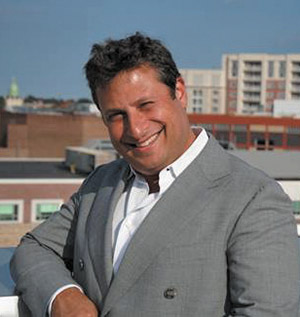
I ran the Recovery House at Rutgers for five years and also worked in the counseling centers in two locations. The center in Newark served a campus with 13,000 students and had four full-time clinicians and another six part-time ones. The New Brunswick center served a campus of 55,000 and had about 40 clinicians, most of whom were full time.
Midway through the fall semester each year, I would meet students who were struggling with mental health and/or substance use disorders who had left an inpatient treatment center in late August and promptly enrolled in school on September 2. They did so either on their own or at their families’ behest.
Many were on medications, while a number of others had decided to stop taking theirs altogether. Very few were in an aftercare program or even seeing a therapist. They all ended up in my office (or with another college counselor) because they were experiencing problems and needed some help.
College can be tough to navigate even if you have great mental health. It can be a nightmare for someone with a mental health disorder or a substance use disorder.
Lisa Laitman, the founder of the Rutgers Alcohol & Other Drug Assistance Program (ADAP), has described colleges as recovery-hostile environments. There is a tremendous amount of partying around Greek life and NCAA sports. Binge drinking, drug use, sexual assaults, bullying, and suicide attempts all happen at a higher rate among 18- to 29-year-olds than the national average.
The National Institute on Alcohol Abuse & Alcoholism (NIAAA) reports that alcohol causes the following problems on college campuses each year:
– Approximately 1,800 student deaths
– 600,000 unintentional injuries
– 700,000 assaults (100,000 sexual assaults)
– Lower grade point average
– 31 percent met criteria for alcohol use disorder
Those aforementioned students who wandered into my office had either relapsed on substances or were experiencing increased symptoms of their mental health disorder(s): usually intense anxiety, depression, or suicidal ideation. These problems were almost uniformly causing them to have academic and relationship problems, and sometimes health, legal, and financial troubles as well.
I would spend time convincing them that they needed IOP or PHP services in order to get them stabilized. Even if they agreed to get treatment, there were more roadblocks to overcome. A good aftercare program offers individual therapy, group therapy, family or multi-family therapy, and medication-management and case-management services. Additionally, I had to find a program that was close, offered groups that fit around their class schedule, didn’t mix populations, was relevant to young people, and kept in touch with us to let us know how the students were doing.
When I spoke with colleagues at other universities around the country, they told me the same stories and difficulties. Schools have become a dumping ground for people leaving treatment in September and January each year, propped up by the hope of themselves or their families that this time things would be different.
On rare occasions, the schools’ counseling centers and deans’ offices had been contacted at the start of the semester and a counseling (or at the very least, a monitoring) plan had been enacted. Research shows that people coming out of inpatient programs have much better outcomes if they have an aftercare program. College counseling centers can provide that aftercare sometimes, but usually people need a higher level of care than is offered by their school (most schools offer a few groups and individual counseling for a limited basis).
Some critics of the American behavioral healthcare system argue that it has been designed to fail—to get people to cycle into treatment over and over again. I’m not that cynical, but I do believe that 10 to 90 days of inpatient treatment without proper aftercare is a waste of time, money, and effort by all involved.
Last August, I left my job at Rutgers and started work for College Recovery, an aftercare program for college students located in New Brunswick, NJ. We work with schools to either help students stay in school while getting treatment or prepare them to return to campus as soon as they are ready. We have PHP/IOP/OP programs for students with substance-use disorders and co-occurring disorders. We offer groups 31 hours a week so that most students can find some time that works. Our center is less than a mile from campus and we try very hard to involve the families in treatment.
It takes a lot of time, money, and effort and a little bit of luck in order to get someone to go to an inpatient treatment center for their mental health and/or substance-use disorder. Without a proper aftercare program, it’s often for naught.
Frank Greenagel, LCSW, LCADC, ACSW, ICADC, CJC, is executive director of College Recovery and an expert in addiction, recovery, criminal justice issues, prescription drugs, high school and college education, military issues, and sexual assaults (and treatment). He is both a vet and a current medical officer in the Pennsylvania National Guard.
By Frank Greenagel, Executive Director









